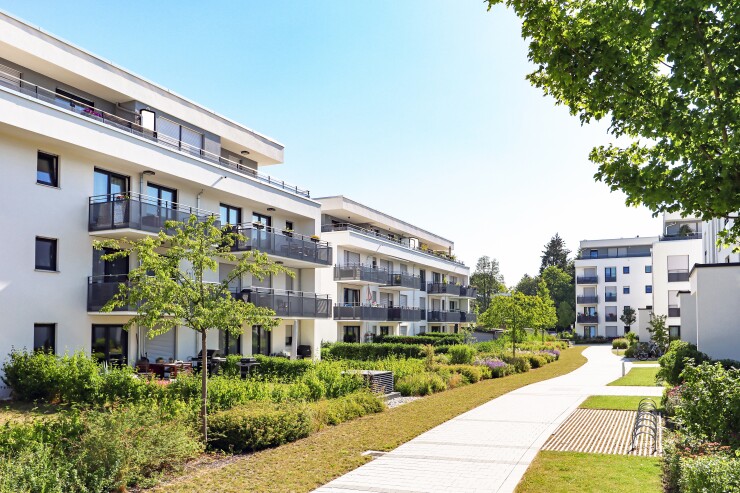Blackstone Group’s real estate income trust subsidiary has sponsored the first single-asset commercial securitization of 2021, in a $477 million transaction secured by a portfolio of recently acquired garden-style apartment properties in five states.
BX Trust 2021-MFM1 is backed by a two-year mortgage loan with three one-year extensions secured by Blackstone’s interest in eight apartment complexes located in Florida, Texas, Georgia, North Carolina and Colorado, according to a presale report issued Tuesday by S&P Global Ratings.
The interest-only loan, underwritten by Morgan Stanley and Deutsche Bank-affiliated DBR Investments Co., finances Blackstone’s portfolio acquisition from JRK Property Holdings.
S&P has assigned preliminary AAA ratings to the $221.1 million Class A tranche in the deal. S&P also assigned ratings to five subordinate term-note tranches as well as to two interest-only tranches. The notes priced Tuesday with a coupon of one-month Libor plus 70 basis points.

The portfolio’s properties encompass 3,206 units with an average age of 22 years, built between 1973 and 2009. Despite their age, apartment interiors, exteriors and commons have benefited from approximately $31.7 million in improvements from the prior owner — and Blackstone intends to invest another $12 million into upgrades.
The properties have performed well throughout the COVID-19 pandemic, according to S&P’s report, with occupancy rates across all eight properties increasing from 91.5% in May to 95.8% in November. The historical occupancy rate has been 92.6% since 2017.
The monthly rent collection rate never fell below 96.4%, providing cash flow that reached $35.7 million for the 12 months ending October 2020 — which grew from $32.7 million in the same period in 2018.
S&P considers the transaction highly leveraged, estimating the loan-to-value ratio at 99.4%. It is far above the issuer’s own LTV of 65.2%, based on a third-party appraiser’s valuation that is 34.4% higher than S&P’s.
S&P says the variance is driven by the ratings agency’s use of higher figures for vacancy loss, credit loss, tax expense, management fees and reserves — as well as a higher capitalization rate of 6.69% versus the appraiser’s 4.66%.





